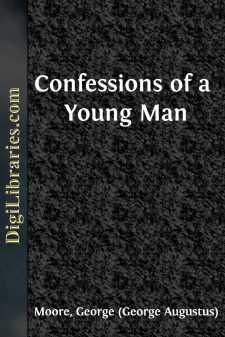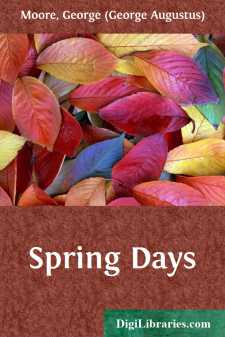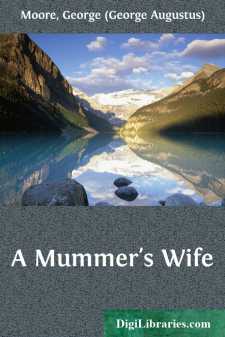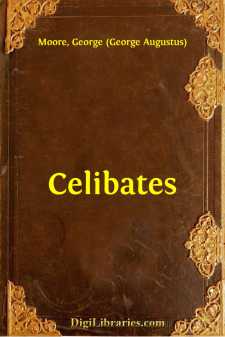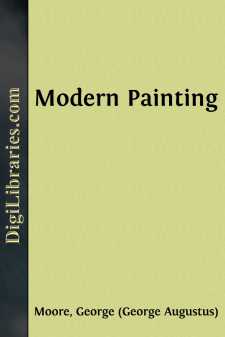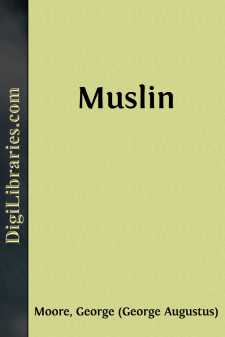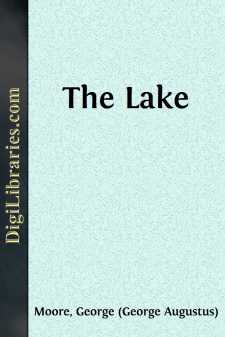Categories
- Antiques & Collectibles 13
- Architecture 36
- Art 48
- Bibles 22
- Biography & Autobiography 813
- Body, Mind & Spirit 142
- Business & Economics 28
- Children's Books 15
- Children's Fiction 12
- Computers 4
- Cooking 94
- Crafts & Hobbies 4
- Drama 346
- Education 46
- Family & Relationships 57
- Fiction 11828
- Games 19
- Gardening 17
- Health & Fitness 34
- History 1377
- House & Home 1
- Humor 147
- Juvenile Fiction 1873
- Juvenile Nonfiction 202
- Language Arts & Disciplines 88
- Law 16
- Literary Collections 686
- Literary Criticism 179
- Mathematics 13
- Medical 41
- Music 40
- Nature 179
- Non-Classifiable 1768
- Performing Arts 7
- Periodicals 1453
- Philosophy 64
- Photography 2
- Poetry 896
- Political Science 203
- Psychology 42
- Reference 154
- Religion 513
- Science 126
- Self-Help 84
- Social Science 81
- Sports & Recreation 34
- Study Aids 3
- Technology & Engineering 59
- Transportation 23
- Travel 463
- True Crime 29
Evelyn Innes
Description:
Excerpt
CHAPTER ONE
The thin winter day had died early, and at four o'clock it was dark night in the long room in which Mr. Innes gave his concerts of early music. An Elizabethan virginal had come to him to be repaired, and he had worked all the afternoon, and when overtaken by the dusk, he had impatiently sought a candle end, lit it, and placed it so that its light fell upon the jacks.... Only one more remained to be adjusted. He picked it up, touched the quill and dropped it into its place, rapidly tuned the instrument, and ran his fingers over the keys.
Iron-grey hair hung in thick locks over his forehead, and, shining through their shadows, his eyes drew attention from the rest of his face, so that none noticed at first the small and firmly cut nose, nor the scanty growth of beard twisted to a point by a movement habitual to the weak, white hand. His face was in his eyes: they reflected the flame of faith and of mission; they were the eyes of one whom fate had thrown on an obscure wayside of dreams, the face of a dreamer and propagandist of old-time music and its instruments. He sat at the virginal, like one who loved its old design and sweet tone, in such strict keeping with the music he was playing—a piece by W. Byrd, "John, come kiss me now"—and when it was finished, his fingers strayed into another, "Nancie," by Thomas Morley. His hands moved over the keyboard softly, as if they loved it, and his thoughts, though deep in the gentle music, entertained casual admiration of the sixteenth century organ, which had lately come into his possession, and which he could see at the end of the room on a slightly raised platform. Its beautiful shape, and the shape of the old instruments, vaguely perceived, lent an enchantment to the darkness. In the corner was a viola da gamba, and against the walls a harpsichord and a clavichord.
Above the virginal on which Mr. Innes was playing there hung a portrait of a woman, and, happening to look up, a sudden memory came upon him, and he began to play an aria out of Don Giovanni. But he stopped before many bars, and holding the candle end high, so that he could see the face, continued the melody with his right hand. To see her lips and to strike the notes was almost like hearing her sing it again. Her voice came to him through many years, from the first evening he had heard her sing at La Scala. Then he was a young man spending a holiday in Italy, and she had made his fortune for the time by singing one of his songs. They were married in Italy, and at the end of some months they had gone to Paris and to Brussels, where Mrs. Innes had engagements to fulfil. It was in Brussels that she had lost her voice. For a long while it was believed that she might recover it, but these hopes proved illusory, and, in trying to regain what she had lost irrevocably, the money she had earned dwindled to a last few hundred pounds. The Innes had returned to London, and, with a baby-daughter, settled in Dulwich. Mr. Innes accepted the post of organist at St....



